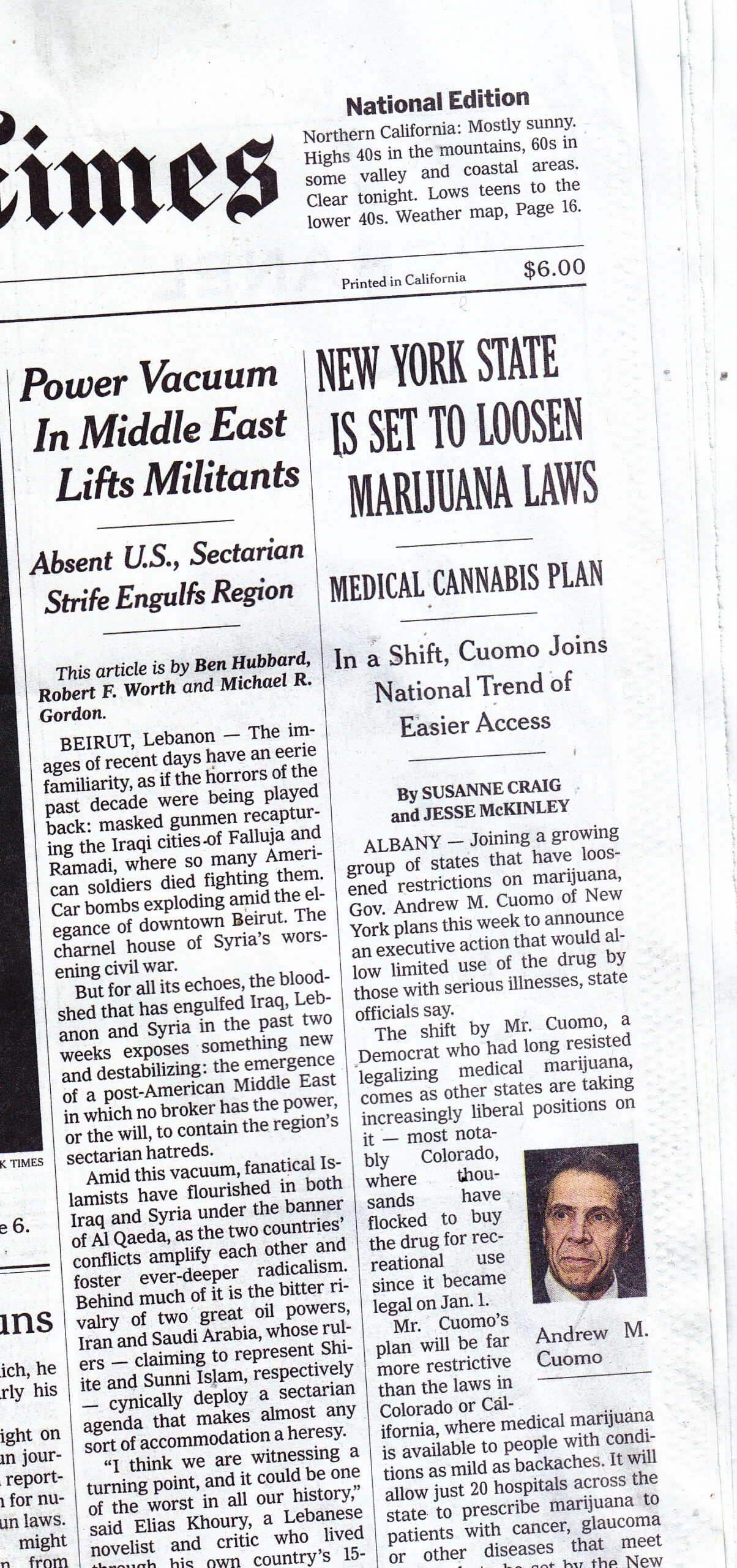Dale Gieringer, the director of California NORML, has played an active role in drafting the Reform CA “legalization” initiative. I had objected to a provision in the current draft acknowledging the boss’s ongoing right, under “legalization,” to fire an employee who uses marijuana at home and shows no signs of impairment on the job. —FG
On Oct 19, 2015, at 10:39 AM, Dale Gieringer wrote:
Our polling was very clear that the public is overwhelmingly favorable to employee drug testing in general, but willing to support exemptions for medical patients.
Employers currently have the legal right to discriminate against persons using legal drugs such as alcohol and tobacco;
To deny this right in the case of marijuana would be inconsistent with established law and highly likely to attract major opposition funding from the Chamber of Commerce.
Exemptions for medical use of drugs do however exist in current law, and are therefore reasonable to extend to cannabis. Several states have laws granting employment rights to MMJ patients.
FG: As for fearing the Chamber of Commerce, professional campaign consultants often defend deplorable provisions by claiming they protect against some imagined thrust by the opposition. How can you call it “legalization” if a worker who shows no signs of impairment can get fired for having smoked pot at home? Employers don’t have the right to fire people because of race, religion or gender, because they have “civil rights.” Couldn’t the case be made that taking a legal substance into your body on your own time is a civil right? I assume the initiative will have a detachability clause saying that if any section is ruled unconstitutional by the courts, only that section gets thrown out, not the whole bill. Is it too late to add a provision to protect all employees (except in safety-related jobs)?
DG: We’re submitting a second filing in a few days.
The initiative currently has language granting employment (and housing) rights to MMJ patients. This is an item that I personally insisted on including… The legislature passed a MMJ employment rights bill back in 2010 (vetoed by Schwarzenegger), and Arizona has one.
FG: How were the relevant questions posed by your pollster?
DG: 1. “Generally speaking, do you have very positive, somewhat positive, neutral, somewhat negative, or very negative feelings about drug testing as a requirement for employment?”
2. “Now thinking specifically about employer-sponsored drug testing of medical marijuana patients, do you believe employees should be excused for testing positive for medical use of marijuana based on a doctor’s recommendation the same way they are for legal prescription narcotics, should they not be excused, or are you unsure?”
FG: I think the results would have been very different had the first question asked people their “…feelings about employees using legal marijuana at home if their performance at work is unimpaired?”
In the Reform CA poll, the question is asked in reference to the current situation. People are being asked to approve of employers exercising their legal right.
But if the question made reference to “legal marijuana,” respondents would be asked to approve of cannabis users exercising their legal right.
Since the initiative is about legalization, why shouldn’t the question be asked in the context of legalization?
The Reform CA poll doesn’t seem intentionally slanted, like Greenberg Quinlan Rosner’s in 2010. But it’s hardly scientific. People willing to answer phone surveys are a subset of the population. Millions of Californians would never share their political opinions with a stranger who knows their name and address. And it stands to reason that a majority of that subset have dissident tendencies.
Click here to read about the case of Ross v. RagingWire, in which the California State Supreme Court upheld the boss’s sacred right to fire an employee who showed no signs of impairment on the job because he used marijuana at home.





